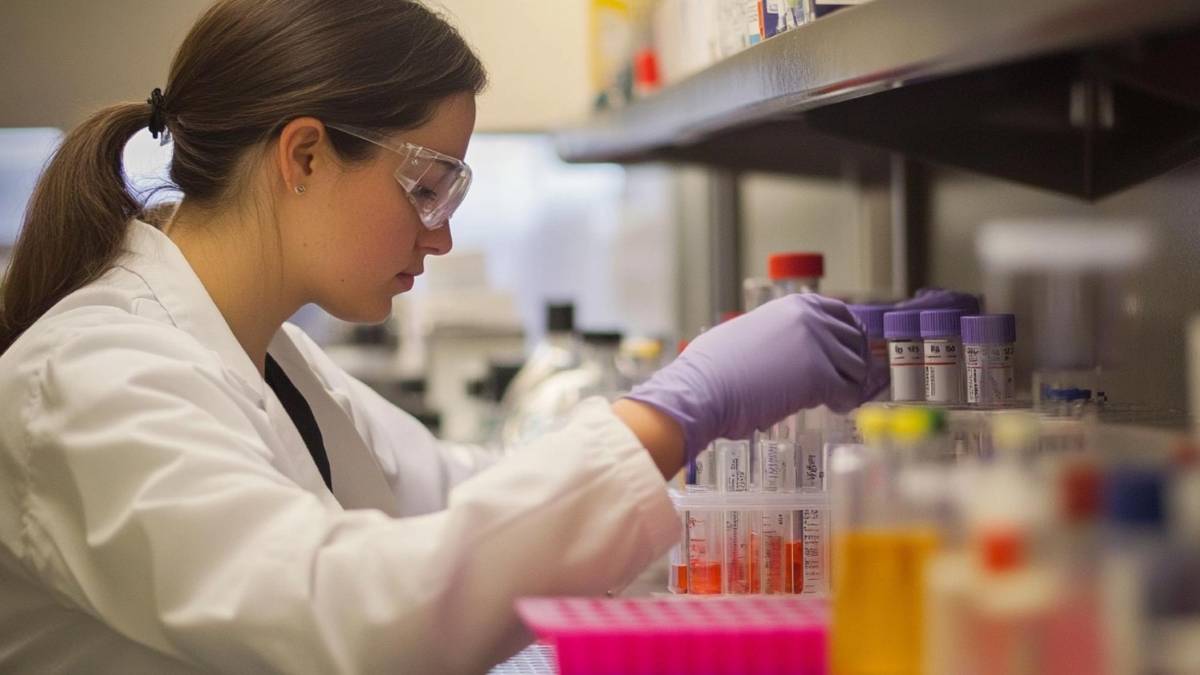Ferritin is a protein that stores iron in your body, ensuring it’s available when needed. While it’s an essential component of healthy metabolism, elevated ferritin levels in blood tests can sometimes point to underlying health concerns. Understanding what high ferritin really means can help you make informed decisions about your health and when to follow up with your doctor.
According to nokmagazinja.hu, ferritin is more than just a measure of iron storage—it can also reflect inflammation and chronic conditions. Here’s what you need to know.
What Is Ferritin and Why Is It Measured?
Ferritin is a protein primarily found in the liver, spleen, and bone marrow. It acts as an iron reserve, releasing iron into the bloodstream when the body needs it for functions like:
-
Red blood cell production
-
Oxygen transport
-
DNA synthesis
-
Immune response
A ferritin blood test is often ordered when doctors suspect iron deficiency or iron overload, or when they want to understand more about unexplained fatigue, weakness, or chronic inflammation.
Normal ferritin levels vary slightly between laboratories, but in general:
-
Men: 30–400 ng/mL
-
Women: 15–150 ng/mL
-
Children: Values depend on age
What Causes High Ferritin Levels?
While high ferritin may sometimes indicate too much iron, it can also be a marker of inflammation or liver dysfunction. Possible causes include:
-
Hemochromatosis
A hereditary disorder where the body absorbs and stores too much iron. If left untreated, it can damage organs like the liver, heart, and pancreas. -
Chronic Inflammation or Infection
Ferritin is an acute-phase reactant, meaning its levels rise in response to systemic inflammation. Conditions like arthritis, infections, or autoimmune diseases may cause elevated ferritin without iron overload. -
Liver Diseases
The liver plays a central role in iron metabolism. Elevated ferritin may signal conditions like hepatitis, fatty liver, or cirrhosis. -
Certain Cancers
Malignancies, particularly blood cancers like leukemia or lymphoma, can increase ferritin levels due to increased cell turnover or inflammation. -
Alcohol Abuse
Chronic alcohol consumption can damage liver tissue and elevate ferritin levels, even in the absence of excess iron. -
Iron Supplementation or Frequent Transfusions
Excessive iron intake, whether through supplements or repeated blood transfusions, can cause a rise in stored iron and therefore ferritin.
Symptoms That May Accompany High Ferritin
In many cases, high ferritin is found incidentally through routine lab work. However, if it’s related to an underlying condition, symptoms might include:
-
Fatigue
-
Joint pain
-
Abdominal discomfort (especially in the upper right side)
-
Skin pigmentation changes (bronze or grayish tone)
-
Irregular heartbeat or chest discomfort
-
Liver function abnormalities
If any of these are present alongside high ferritin, further investigation is crucial.
When Should You Be Concerned?
An isolated high ferritin result is not always a cause for alarm. However, medical attention is advised if:
-
The ferritin level is significantly above the reference range
-
You have additional abnormal blood markers (e.g. high liver enzymes, CRP)
-
There’s a family history of hemochromatosis or liver disease
-
You experience unexplained symptoms like fatigue, weight loss, or joint pain
In such cases, doctors may order additional tests such as:
-
Serum iron and transferrin saturation
-
Liver ultrasound
-
Genetic testing for hemochromatosis
-
C-reactive protein (CRP) to evaluate inflammation
These help determine whether the elevation is due to iron overload, inflammation, or another cause.
Can High Ferritin Be Treated?
Yes, but the treatment depends on the underlying cause. Some general strategies include:
-
Phlebotomy: Regular blood removal, commonly used in hemochromatosis, to reduce iron levels
-
Chelation therapy: Medications that bind and eliminate excess iron (used in cases of transfusional iron overload)
-
Anti-inflammatory treatments: For those with autoimmune or chronic inflammatory conditions
-
Lifestyle changes: Reducing alcohol, avoiding iron supplements, and limiting red meat intake when appropriate
It’s important not to self-treat. High ferritin is not always caused by iron overload, so blindly restricting iron intake or taking supplements can do more harm than good.
Diet and Lifestyle Considerations
If your ferritin levels are elevated, talk to your doctor before making major dietary changes. In general:
-
Avoid unnecessary iron supplements unless prescribed
-
Limit high-iron foods like liver, red meat, and fortified cereals if recommended
-
Eat more antioxidant-rich foods (berries, leafy greens, nuts) to support liver health
-
Stay hydrated and maintain a healthy weight
-
Reduce alcohol intake, as it can strain the liver and raise ferritin
These habits can support your body’s natural balance and make treatment more effective.
Conclusion: High Ferritin Deserves Attention, Not Panic
Elevated ferritin levels can mean different things depending on the context. While it sometimes reflects too much iron in the body, it can also point to hidden inflammation, infection, or liver stress. Understanding the full picture — with help from your doctor — is essential for proper diagnosis and treatment.
Rather than worrying about a single lab result, use it as a prompt for deeper insight into your health. With the right medical guidance, high ferritin can be managed — and in many cases, resolved.
Source: nokmagazinja.hu – Ferritin magas érték a laboreredményben: mit jelent és mikor kell aggódni?

